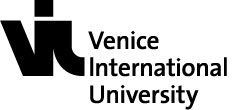S1931 Environmental Crisis and Societal Change: Discourse, Effects, Solutions
Professors
Schedule
Course description
By 2050 the average global temperature will possibly have risen by XX degrees, melting ice caps, changing the climate of many regions in the world, causing damage of mythic proportion and sending millions of climate refugees on roads of exile. This class, as its subtitle suggests, has a triple aim: examine the discourse in which these sometimes apocalyptic narratives are presented; consider from several points of view what the effects of these narratives are, how they, for instance, mobilize or demobilize people; what solutions can be brought to bear, for the this class is resolutely turned to the future that the generation of students in the classroom represents.
While there seems to be a certain scientific consensus about the human agency in these climactic effects, the discourse about them remains confusing. Not only is there a stark contradiction between ecologically-minded scientists and citizens and climate change deniers, but the language itself is often confusing: “Nature,” XXX writes, “is one of the most complicated words in the English language.” By the same token, economists, meteorologists, ecologists, biologists, philosophers have something to say about this environmental crisis, but their discourse (logos) is based on different ways of knowing the world (Sophia) and different ways of administering (nomos) our habitat (oikos). Part of the class will consist in unravelling the vocabulary and the metaphors that have constructed the natural and cultural world we inhabit, as well as the threats (real or imagined) under which we live. The effects of this ecological crisis are very diverse. The image of the polar bear sitting on a melting piece of Arctic ice has become an illustration of it, even a bit of a cliché. However, number of people are moved by that image, while they remain insensitive to other aspects, such as the movement of populations; at the same time, economic effects produce contradictory sentiments: fear to lose a job, fear to lose one’s comfort, bad conscience about the Western culture of excess, fear to have to share one’s space and many more. It appears that solutions need to embrace the diversity and the contradictions outlined above: solutions need to be local and global; they need to be philosophical and economic; they need to reconcile the past and the future, and they call for the emergence of an understanding in which disciplines do not merely talk across purposes, but actually collaborate.
Environmental Crisis and Societal Change (SCSE) is, therefore, a transdisciplinary course in the humanities that encourages students to reflect upon and learn about the major crisis that we are experiencing in our time. The class proposes to historicize notions such as “nature” and “culture” to show their constructedness and locality. Students will be confronted to very different sorts of documents ranging from economics to philosophy, poetry and linguistics to suggest lead them to abandon their zone of intellectual comfort and destabilize what they know and believe. The class will take advantage of the its meeting on an island, a sort of utopia with a utopian community of international students, to question how we construct and sometimes jeopardize our notion of community. We shall centrally examine the role of language in all our human interactions. At the same, time, the course will heavily rely on the students’ diversity in background and expertise to foster collaborative work in the classroom. To this end, students will be asked to work individually (short essays) on a variety of documents which will be presented in class (lectures and discussion); the other part of the class will be devoted to collaborative work in class (and possibly outside—weather and logistics permitting; seminar format and group workshops). The evaluation of the class will reflect the diversity of the material and the diversity of the approaches. The point is not only to combine different pedagogical approaches, but also to lead students to the realization that they need to combine their different talents, which is exactly what our current ecological predicament calls for. Thus, students will be evaluated on their individual responses, their contribution to workshops, and a final essay that will enable them to articulate and further develop their ideas and solutions.
Learning outcomes
- Introduction to Ecocriticism
- Understanding of the historicity of crises
- Understanding of the language of crisis and its performative effects
- Developing of capabilities in the analysis of a variety of documents and their combination
- Understanding of the role and value of the humanities in current crisis
- Developing the ability to analyze and write about different types of text
- Improving of written and oral expression (in English)
- Developing of work group and collaborative strategies (including oral expression & leadership).
Class Evaluation:
10 Weekly short essays (500 words): 40%
Participation in class discussion groups (workshops) 20%
Final essay (3000 words): 40 %




















